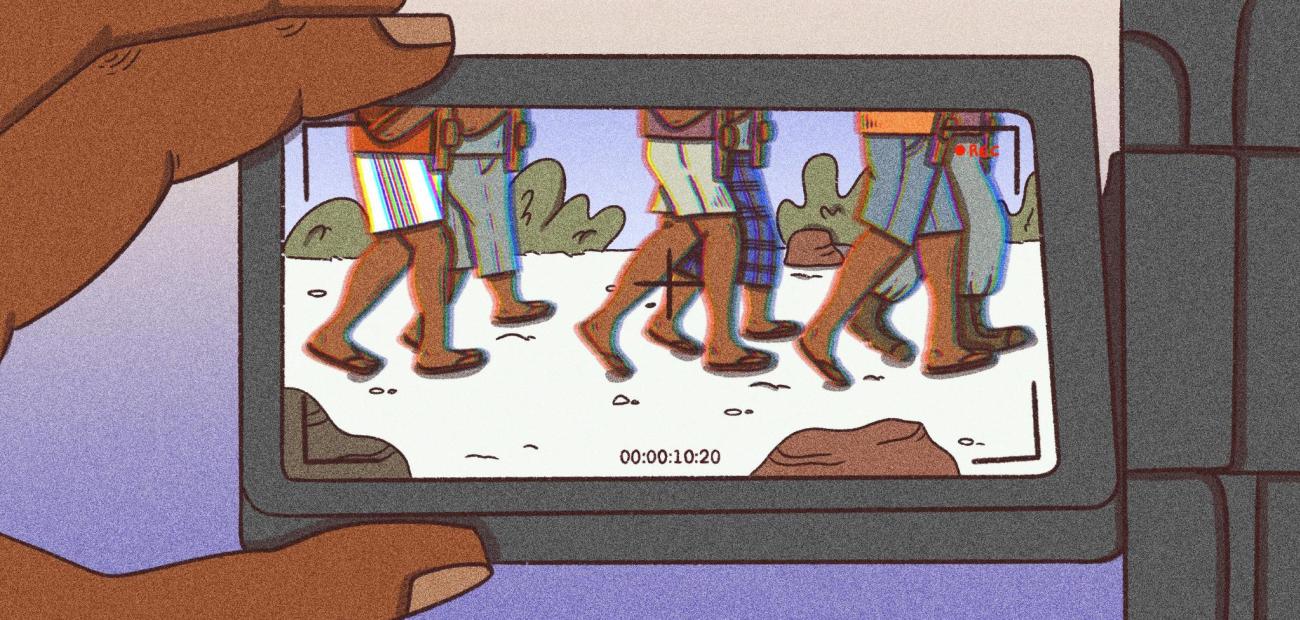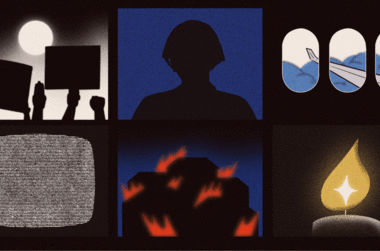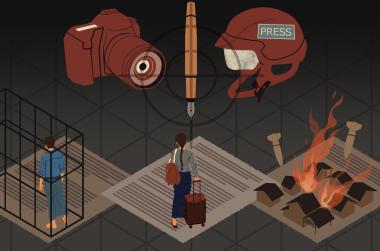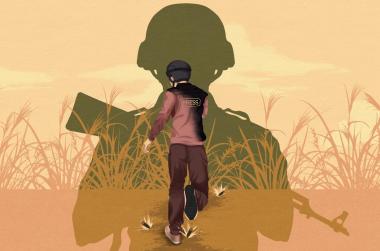The author is a journalist from Kayah/Karenni State and they are receiving support from The Kite Tales to write these diaries.
We were deep in lush, green forest and surrounded by mountains but none of us stopped to enjoy the natural beauty around us. Young people, many wearing soccer jerseys and their everyday clothes were going through an intense training regime run by the Karenni Army, an ethnic armed group known by its initials KA.
It was the middle of 2021 and many young people were preparing to engage in an armed revolution against Myanmar’s military.
The military training was not like you see in the movies, with recruits lined up neatly in uniform. The training regime was intense nonetheless and the youths looked exhausted, but I could still see the enthusiasm on their faces and their determination to fight the military dictatorship.
I stayed in that camp reporting on their activities for a while so I became close with many of them. I got to know a boy named Ku Vwee at the camp and later, when he was able to use the internet, we also talked online.
Ku Vwee is from Loikaw, the Kayah state capital, and had only just finished his studies when the military seized power. When we met, he was only 21 years, and tanned and slender. He loves to fix machines and tools and had been the person his family and neighbours had called with their tech problems. He also helped his parents on their farm.
The coup changed all our lives. Before the seizure of power, Loikaw was a beautiful and peaceful town. Now it is a warzone.
Before the coup, Ku Vwee would never have imagined joining the KA, but when the military’s atrocities and abuses came to his town, he and a group of his friends signed up to fight.
He has little to go back to. About a year after he joined the KA, Ku Vwee’s home in Loikaw was destroyed during fighting between the military and the Karenni Army.
"Everything except the toilet was turned into ash," he told me. Ku Vwee wasn’t not sure exactly how his house caught fire but he thought it was caused by a heavy weapon.
Even though I heard it second hand, it affected me because we are talking about a home. A home is more than just a building for all of us, isn't it? It is the representation of a life.
When the house went up in flames, everything his parents had saved, from food to their belongings and material wealth, was lost. This was a farming area, where, unlike in big cities, people’s livelihoods are tied to agriculture. You farm and you store what you harvested this year for your family’s consumption and for planting next season’s crops. If there was any surplus, they will sell and the money goes towards buying what they need for the house. They lost everything.
Overnight, the family became homeless and ended up at a displacement camp. That began a period where Ku Vwee started feeling more distress than he had ever felt. His parents tried to continue farming while at the camp but they had to start from scratch. It also affected the education of his two school-aged sisters. As the older son, he felt acutely about not being able to be near the family. In that period, Ku Vwee, who was always ready with a smile, turned sullen.
“It’s very difficult for me to face. When my family had to flee the war, I was away and there was nothing I could do to help them," he told me.
At the same time, the entire Karenni State was cut off from both phone and internet so it was very difficult to contact his family and find out how they were doing. Still, he managed to track them down. Staying in touch and supporting each other gave them the strength to overcome the difficulties during that period, he told me.
In his three years as a soldier Ku Vwee has been involved in quite a number of frontline battles. Friends and comrades have died one by one. Others have lost limbs. He often wonders whether this day will be his last, or if he will lose another of his friends by his side. Every time they go to the frontline, it is too painful to even comprehend.
This is the age when young people should be following their passions and hobbies, not dying or killing others. But this is the reality of life for them.
Once, Ku Vwee was part of a group that went to capture a military camp. By the time they arrived, they discovered that the group that had gone ahead didn’t make it out alive. This incident really affected him. In later battles, the thought that the bullets passing by his ear could take his life always haunted his mind, he told me.
But if you ask Ku Vwee if he doesn’t want to escape such a terrible situation, he says he has no intention of leaving. With UN estimates that more than two million people are displaced within the country alone, Ku Vwee is not the only one desperate to return home. He feels that the battle to rid the country of the Myanmar military must be fought - and won. This way, he thinks, eventually everyone will be able to go home.
Neither Ku Vwee nor I know when the revolution will end, but when it does, he has a dream to start his own business related to his passion for technology. And he is determined to build a better house for his family in the place of the one that has been destroyed.
One day we will all go home. When that happens, I’d like to go to his shop to get some electrical equipment repaired and reminisce about the past.
Artwork by JC who is receiving support by The Kite Tales to produce illustrations.





